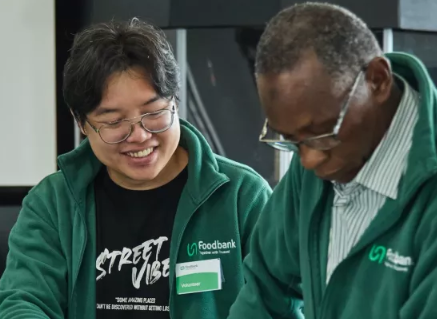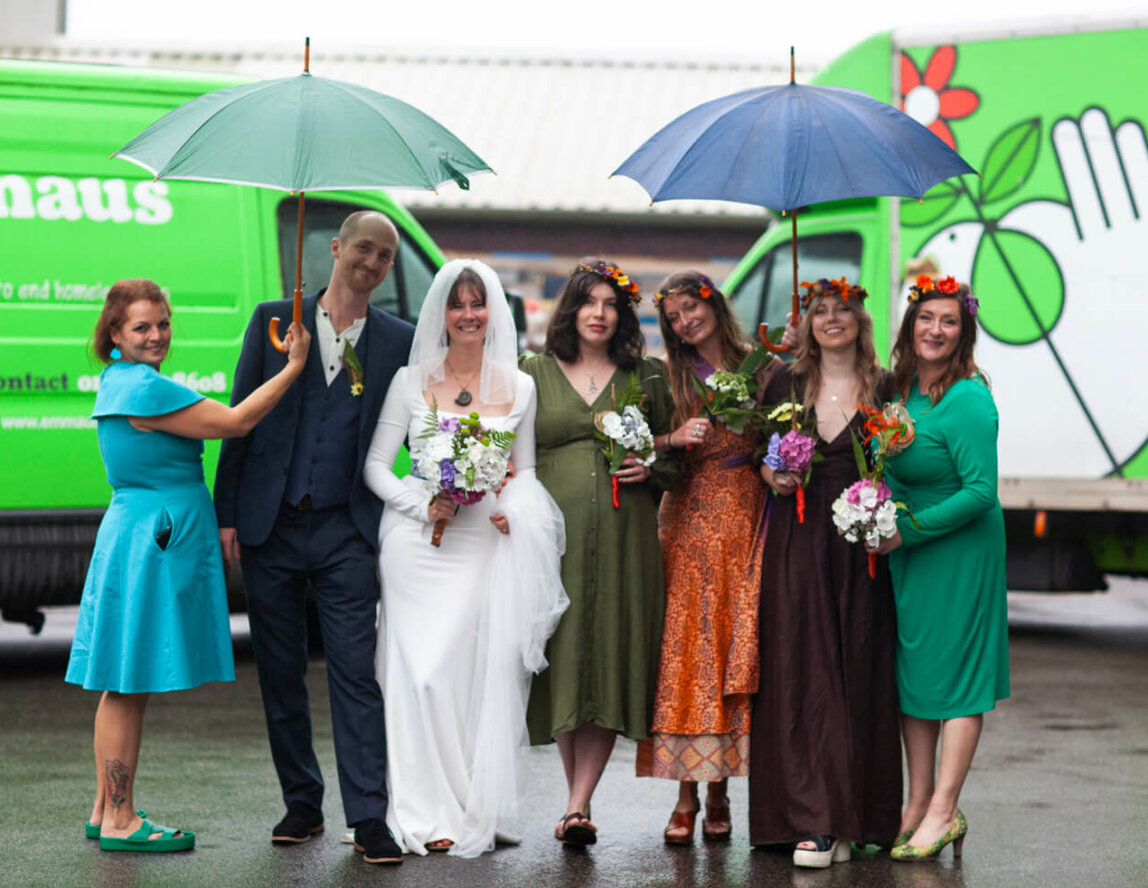Jill Robinson, CEO and founder of Animals Asia discusses her day-to-day role, the sector and challenges the charity faces.
___________________________________________________________________
1. In a nutshell, what does your day-to-day role look like?
Every day is different - but, as I live in Asia (Hong Kong, China, Vietnam) and our staff work across many different time zones, every day usually begins around 6 am with a very large cup of tea while responding to emails, or returning calls that have come in through the night. I count myself so incredibly lucky to be working in such a diverse, exciting, and fulfilling environment. where my passion for animal welfare and conservation connects with a long-time interest in sociology and with the consequences of our own behaviours that affect societal change.
One day could then be preparing to give lectures or events, catching up on the many staff meetings, or programme strategies - or even joining our dedicated, professional teams rescuing bears. Another day could be hanging out with our gorgeous Ambassadors and close friends Peter Egan, Lesley Nicol (Downtown Abbey) and musician Rick Wakeman (or even meeting Slash or Judi Dench for a cup of tea). Often hanging around in airports waiting for flights to our sanctuaries in China and Vietnam - or farther afield to meet our wonderful supporters across the world and attend conferences. Often trying to fit in some exercise along the way and catch up on completing my book. Even writing this, sounds totally bonkers, but I think I can safely and happily say that I'm enjoying a life well lived.
My greatest daily satisfaction and joy is heading up Animals Asia's programme areas as we work together on the intricate but powerful strategies to end bear bile farming, end the consumption of cats and dogs, support work in the field to rescue or enhance the lives of captive wild animals, and of course, work with our fantastic teams to help keep our three bear rescue sanctuaries in China and Vietnam that have rescued over 700 moon, brown and sun bears running smoothly.
[For anyone curious about what bear farming is - in short it sees the cruel cage confinement of thousands of mainly moon bears (so called because of the beautiful yellow crescent of fur on their black chests) in Asia, suffering for the bile extracted from their gall bladders and used in traditional medicine, despite the herbal and synthetic alternatives that can take the place of bear bile.]
By evening I'm ready for the treat and the promise of totally switching off - with dinner, Netflix and the hopeful thought of 7 hours of sleep until it all starts over again.
2. What are the biggest challenges your organisation currently faces?
When I was a lot younger the general culture was to just get on and deal with things. But, as anyone working in the charity sector today knows, you see and experience things that literally bring you to your knees, and it's important to have help and resources available for everyone's physical and mental health. We call ourselves a family and I believe that this mindset is fundamental in terms of kind behaviour towards our peers and colleagues, and in staff retention too. We employ over 400 staff and the ripple effect of this is undeniable as it fans out in the culture of our work and in the message to our supporters that they are not only helping our campaigns, but helping to underpin many of our values that they too hold dear.
Of course, always fundraising is a challenge, and keeping our own rescued bears and elephants, and animals in other sanctuaries, happy, healthy and well fed.
Currently, we're working on finalising the construction of our second sanctuary in Vietnam to rescue the remaining 250 bears now languishing and suffering in cages across the country. We have a keen sense of urgency as the Vietnam government invited us to sign a formal Memorandum of Understanding to end bear bile farming by the year 2026 and we're now desperately working to keep to this promise and goal, shutting every last farm down within the next three years.
Building a sanctuary for strong and curious bears is no walk in the park and the cost is many millions of pounds - especially when the authorities are urging us that the quicker we can build, the more urgently the farms can be closed and the bears rescued into our care for the rest of their lives. For anyone reading this who is interested in helping, please do get in touch.
3. And, in your opinion, what are the biggest challenges the sector faces?
Post-COVID we - and so many other charities - are suffering from a downturn in funding and the cost of living squeeze. Understandably, people lost so much during that time and, with the wars, inflation and worldwide economies suffering, the charity sector is often the first to be hit, as people draw in their horns and feel less able to help causes that are important to them.
Just keeping everything going is an enormous responsibility and stress as it's predicted that the tough economic climate for the charity sector will continue in 2024 and beyond. Price increases see operating costs increase and, when you have hundreds of mouths to feed as we do, this becomes even more challenging and even more risky for future survival. Our ex-Chairman, John, used to quote Winston Churchill and tell us to KBO, but I'm sure like others in the sector we do struggle sometimes to "Keep Buggering On".
4. What do you love most about your job?
I love the fact that, as alluded to above in my statement surrounding sociology, we can make groundbreaking change with a village of people who join and celebrate a cause, that makes a monumental difference for communities and animals on the ground.
Our campaign ending bear bile farming in Vietnam is stand-alone, providing the richest example of a win-win solution for the Vietnam government, the bears, the practitioners of traditional medicine and even stakeholders who can all benefit from our ethics and work. Imagine an industry that cruelly takes bile from the gallbladders of bears, and makes medicines and money for all those involved. Now imagine the insight of what began as an audacious dream to close it down, and the ripple effect of projects and change on the ground, where no one suffers as a result of our work.
In Vietnam where, thanks to the government, bear farming is now illegal, traditional medicine practitioners are pledging to stop selling bear bile and are supporting the development and production of herbal preparations that they can sell to take its place. School children are growing those same herbal alternatives in gardens across the country, and communities are receiving free health checks and samples of the herbal balm that are replacing the body fluid of bears. Bear farmers (now well off from the industry) are being publicly praised for having the integrity of surrendering their Appendix I Endangered species of bears and even saying they feel "released" after seeing those same bears lazing on grass in our sanctuaries.
All of our programmes are not just about caring for animals, but also for people, as exampled by our human-bear conflict project in China that helps to protect both bears and people in rural areas where curious wild bears enter communities opportunistically to find food, and either cause damage or harm, or are harmed or killed themselves. Now with our humane electric fencing installations in these same areas, the bears and other species such as macaques and wild boar are wary and staying away, while seeing them and the villagers are no longer harmed, but safe.
Our Dr Dog and Professor Paws programmes in Asia show the general public the delights - and the health benefits - of sharing our lives with dogs who offer unconditional love and are happily and comfortably natural four-legged therapists. Our support of local groups to grow and enhance their rescue shelters for dogs and cats, provide trap, neuter, return (TNR) projects to help local communities live in harmony with stray cats, and our public education programmes at shopping malls and exhibitions continue to grow with the underlying message that companion animals are our friends, not food. And linking with this our welfare projects that demonstrate the sentience and rich emotional lives of farm animals - just like dogs and cats - who deserve better than how they're treated today.
5. Finally what advice do you have for other charity leaders?
Without hesitation, be honest, be brave and be kind. My dad used to say "Don’t tell me how you can't do a thing, tell me how you can". So in times of stress and trying to figure out how to "do a thing" - his words help me to get out of bed.
After several years of running Animals Asia, in 2007, I knew we were heading for trouble, both financially and in terms of organisational growth and harmony. I will always be grateful to Kirvil Skinnarland, who suggested that we needed a complete upheaval in the form of a strategic planning process. Kirvil warned that I would need big shoulders, because we would begin with an initial and anonymous survey, and that many CEOs in the same situation then shut these surveys down and refuse to circulate them because they're so ashamed of the outcome.
She was right. The survey showed that we had a bottleneck in the organisation, there were too few people, like me, making too many decisions. We needed to empower our staff to take more responsibility, both for their successes to make their own mistakes and learn, and because it's the only way for staff and the organisation to step up and grow. It was painful, uncomfortable and challenging - and it was one of the best things we ever did, and it set us up for success. That, and bringing in the best boards, trustees and staff - who also believe and passionately promote and live by the culture, values, goals and mission. So again, be brave, engage your staff, sweat the small stuff (because the small stuff matters), and however unpalatable at first, you'll see a big opportunity for clarity, change and success.
And the last word, as Charity leaders we have to make so many difficult decisions, and kindness is important too - in the workplace and our everyday lives. Because in this often violent world today, if we're kind we can't be cruel. Our Animals Asia tagline - Kindness in Action - serves us well, for people and animals in everything we do.
Latest News
-
Free support service launches to help charities tackle climate change
-
Disability charity chief to co-chair global women’s rights organisation
-
Regulator issues official warning to charity over video containing distressing content
-
World’s wealthiest give ‘significantly less’ than those in low-income countries
-
Charity's council partnership secures £580,000 for older people in three months
-
Monwara Ali: Rethinking the 'talent crisis'
Charity Times video Q&A: In conversation with Hilda Hayo, CEO of Dementia UK
Charity Times editor, Lauren Weymouth, is joined by Dementia UK CEO, Hilda Hayo to discuss why the charity receives such high workplace satisfaction results, what a positive working culture looks like and the importance of lived experience among staff. The pair talk about challenges facing the charity, the impact felt by the pandemic and how it's striving to overcome obstacles and continue to be a highly impactful organisation for anybody affected by dementia.
Charity Times Awards 2023
Mitigating risk and reducing claims

The cost-of-living crisis is impacting charities in a number of ways, including the risks they take. Endsleigh Insurance’s* senior risk management consultant Scott Crichton joins Charity Times to discuss the ramifications of prioritising certain types of risk over others, the financial implications risk can have if not managed properly, and tips for charities to help manage those risks.
* Coming soon… Howden, the new name for Endsleigh.
* Coming soon… Howden, the new name for Endsleigh.
Better Society

© 2021 Perspective Publishing Privacy & Cookies











Recent Stories